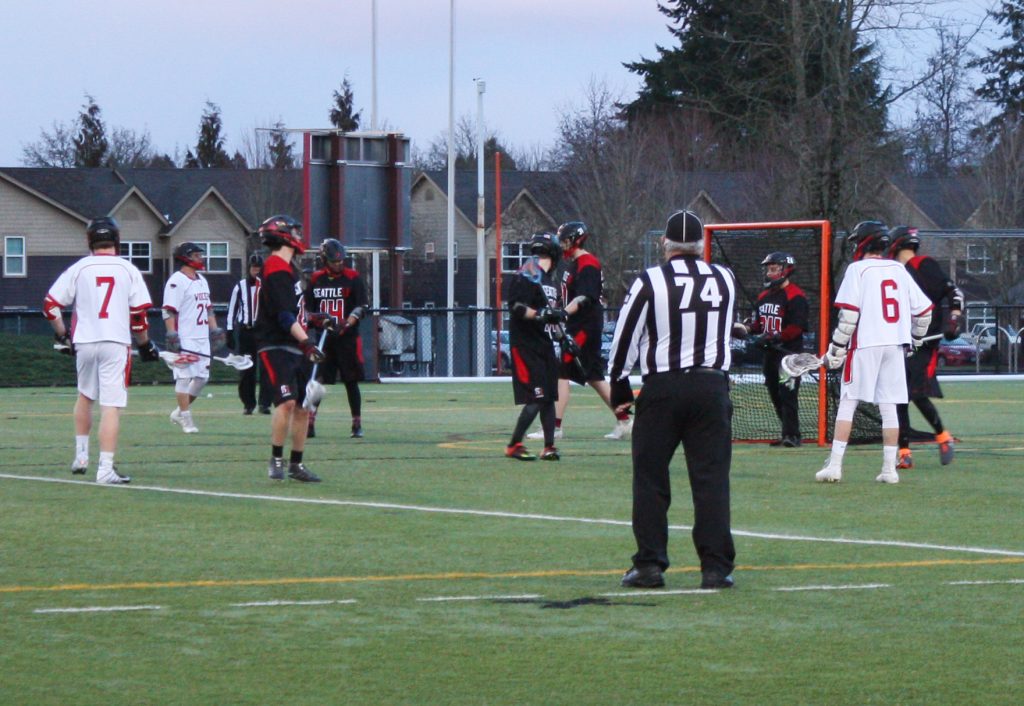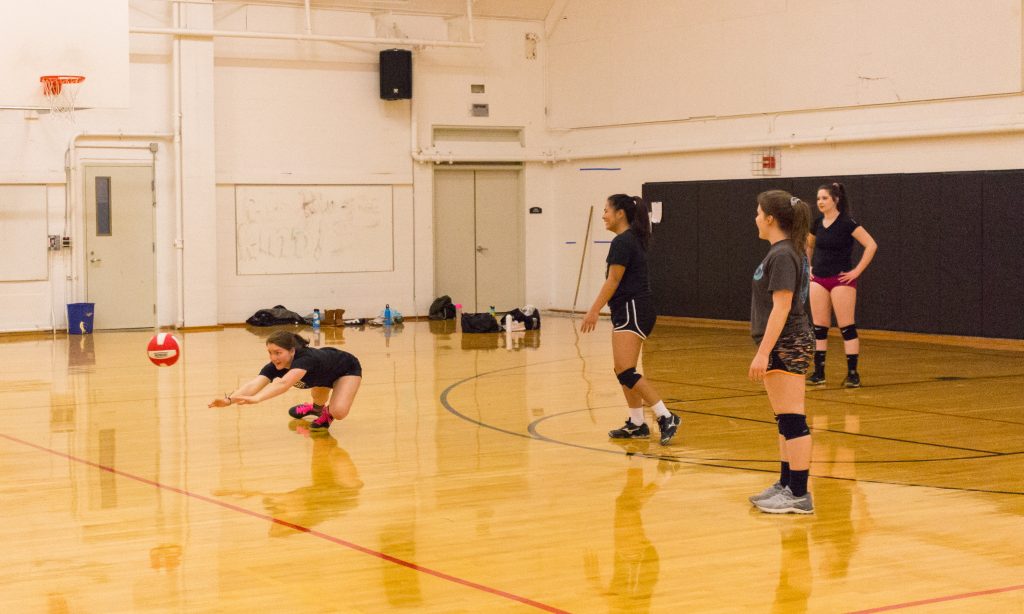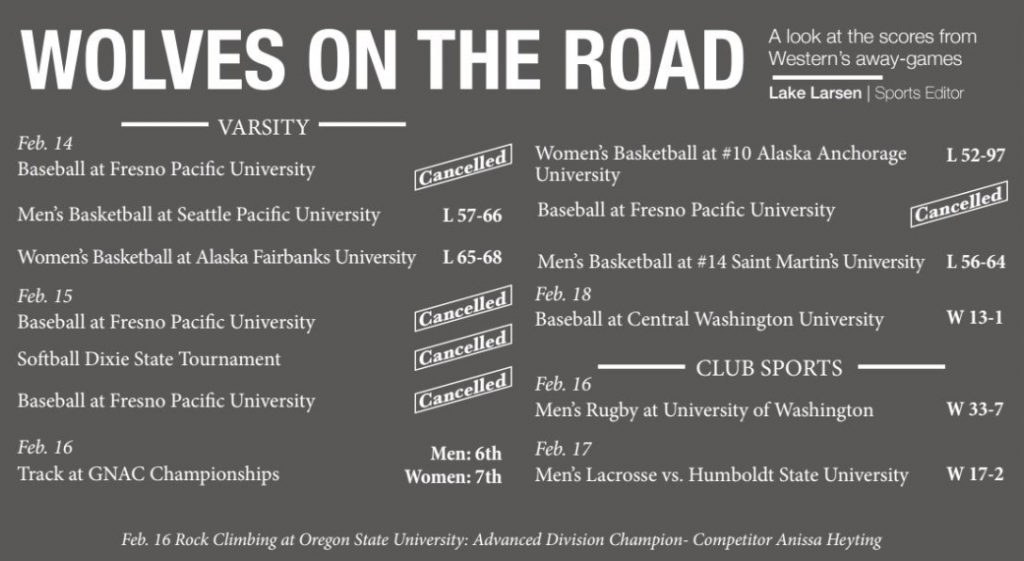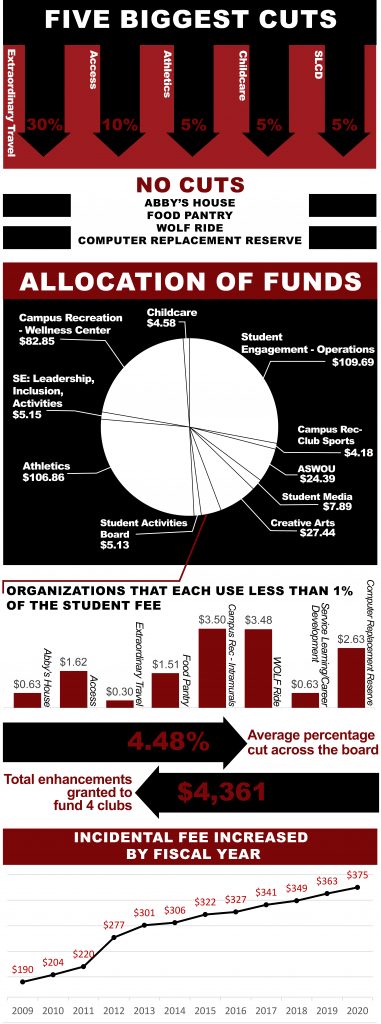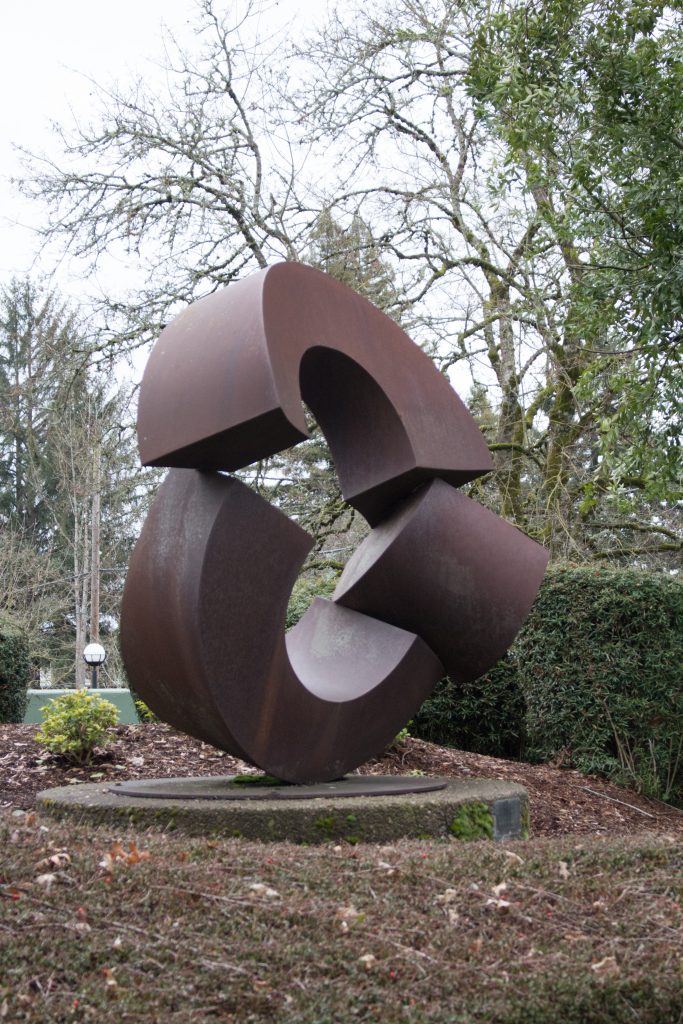
Chrys Weedon | Entertainment Editor
If a stranger were to stroll through Western Oregon University’s campus, they would stumble across many different art pieces of many different mediums: sculptures, tapestries, paintings and more. Oregon’s Percent for Art program is the biggest reason Western’s campus is brimming with art.
Discussions about the program began in Oregon in the year 1975, and by 1977 something that only existed in Marion and Polk counties was extended to a statewide project. The Percent for Art program dictates that when a public construction project is under way, no less than one percent of the project’s funds must be put aside “for the acquisition of public-facing artwork in all state building construction plans with budgets over $100,000,” according to oregonartscommission.org.
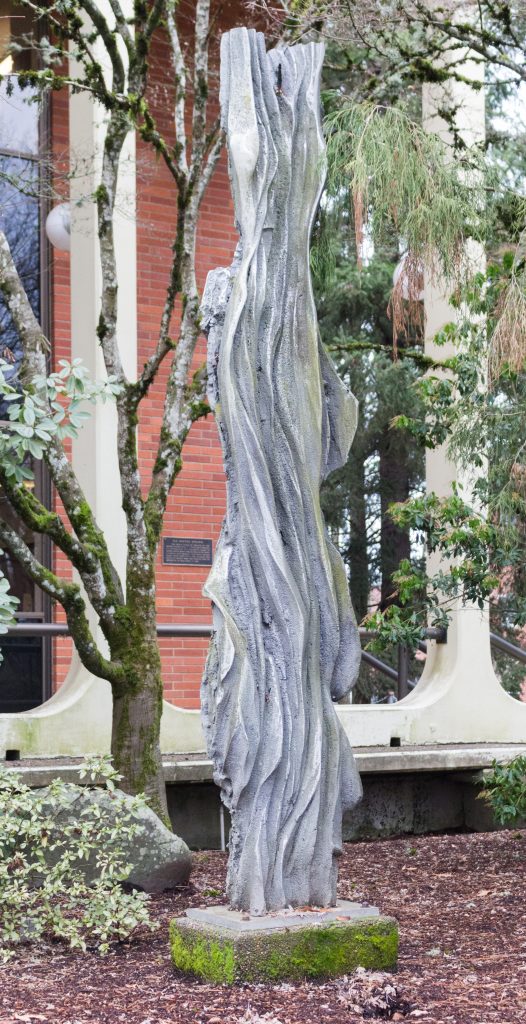 The Oregon Arts Commission states that the Percent for Art program places “high quality, accessible, and mostly visible” art where the public can enjoy it. The OAC’s collection now contains more than 2,400 art pieces that represent over 800 artists.
The Oregon Arts Commission states that the Percent for Art program places “high quality, accessible, and mostly visible” art where the public can enjoy it. The OAC’s collection now contains more than 2,400 art pieces that represent over 800 artists.
Art for public buildings is collected in one of two ways: existing art pieces are purchased from an artist or gallery, or a site-specific piece is commissioned from an artist. Commissions can be chosen through proposals submitted by artists through either an open call or exclusive invitation. Art pieces are then chosen by a selection committee.
Mike Elliot, the associate director of Facilities Services at Western, outlined the process of choosing an artist.
“It requires setting up a committee to help (with) defining the most appropriate type of art design based on: 1. size of the project, 2. budget of the project (and) 3. appropriate type of art based on the building program and is it new or existing construction.”
A pre-project information checklist for Percent for Art selections, provided by Elliot, states that the selection must consist of one to two representatives of the department where the artwork will be displayed (for example, housing or athletics), one student, one project manager from facilities, a project architect and one landscape architect.
These committees discuss potential art pieces, styles and themes the most appropriate for each building.
“There is a pool of prequalified artists that proposals can be solicited from,” added Elliot. The process for selecting an art piece takes “typically, about 1 year,” according to Elliot.
Elliot also provided forms in which instructions for maintenance of the art piece can be outlined by the artist. These guidelines include sections where the artist can detail handling instructions and “physical qualities for which (Western) should strive in order to maintain the artist’s intent.”
An example of the Percent for Art program is the current renovation of Natural Sciences. According to Western’s website, the renovation budget for the building is six million dollars. Therefore, $67,000 of that budget will go toward buying the art itself, through the Percent for Art program. Originally, $79,000 was set aside, but $7,900 was paid to the Oregon Arts Commission for an administration fee, minus $2,000 for an artists stipend, and minus another $2,100 as contingency.
The Percent for Art program has made a significant impact on Western’s campus, with its newest installation being the flower sculpture in front of the Richard Woodcock Education Center. What installation will the program bring next?
Contact the author at howlentertainment@wou.edu
Photo courtesy of Ashlynn Norton




